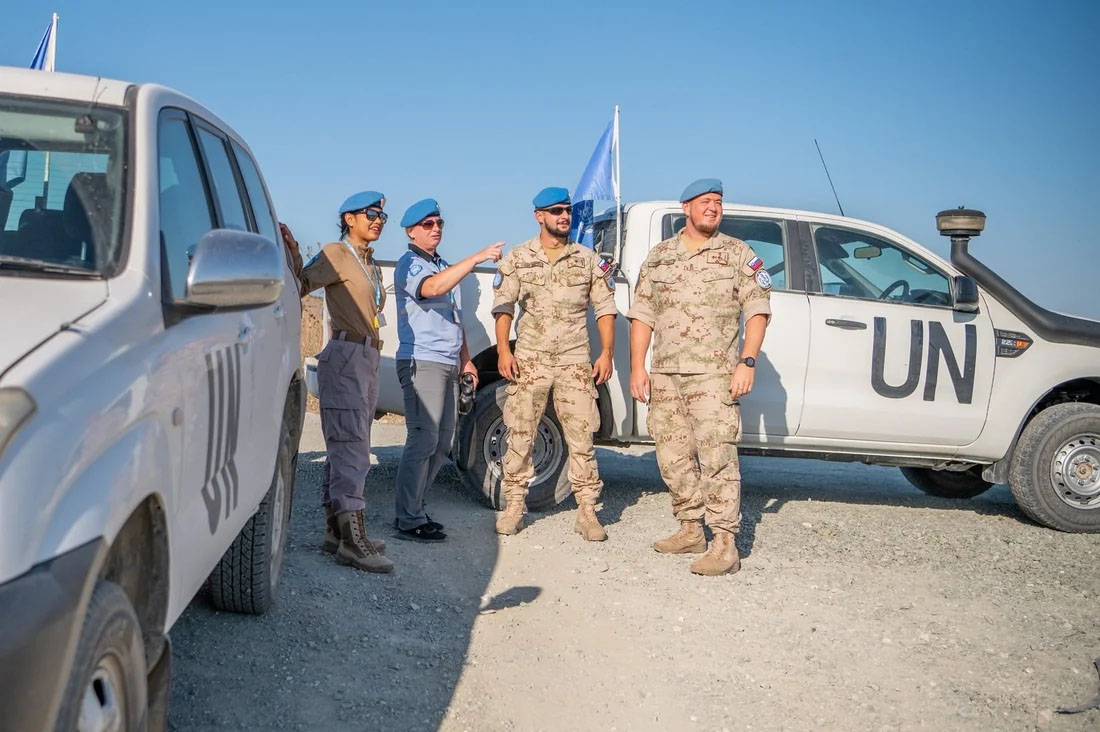Unficyp should have asked Turkey and UK to foot their bill as well as Cyprus and Greece
By Fahri Zihni
The United Nations (UN) has three key principles for its peacekeeping operations. These are consent of the parties involved, impartiality and non-use of force except in self-defence and defence of the mandate.
In 2018, the Turkish Cypriot leader Mustafa Akinci called for a separate State of Force Agreement (SOFA) between northern Cyprus and Unficyp, and asked the UN Security Council for the reassessment of the Unficyp’s mandate. Nothing has changed since. Currently, there is nothing on paper which sets out the UN’s modus operandi in relation to northern Cyprus. North Cypriots are the invisible party. So there is no secret about the fact that the Turkish Cypriots, as one of the two essential interested parties have lost all confidence in the UN and Unficyp, and are not consenting to the presence of the UN. Indeed, in 2022, they went as far as asking Unficyp to leave their stations in the north.
Partly for the purposes of impartiality, peacekeeping soldiers are paid for by their own governments according to their own national rank and salary scale, not by the country in which they operate. These governments are then reimbursed by the UN from a central budget which is funded by all member states.
This is not what happens for Cyprus.
In the early 1990s, the UN did not see Cyprus as a priority given that there had been no fighting there for nearly two decades, and no resolution was reached to the Cyprus problem after numerous UN attempts. It questioned the need to continue with this mission and incurring costs, having run-up a deficit of US $200m. Surprisingly, an exception was made by the UN in 1993 that in the case of Cyprus, a new resolution (47/236) would apply which would allow the Republic and Greece to pay a substantial part of the peacekeeping mission themselves.
Today, the Unficyp approved budget for the period of 2023-2024 stands at US $56m of which $24m is paid for by Cyprus and Greece. This amount matches the cost of the military and police personnel and it is paid directly into Unficyp mission’s budget, not the central UN budget. The amount paid into the UN’s central budget is only $1m. This does call into question whether the impartiality of the UN forces in Cyprus, and its officials in New York is compromised due to this unique arrangement.
The UN could have avoided this clear conflict of interest by encouraging the relatively paltry shortfall payment to be made by the Cyprus constitution’s three guarantor countries of the UK, Greece and Turkey. Questioning the need for the presence of the UN in Cyprus, seemingly ad infinitum, is a recurrent theme for the UN leadership and continues to this day. As an alternative to provisioning ongoing payments, the UN could have led discussions about an orderly and secure exit strategy that is acceptable to all sides, potentially benefiting all Cypriots through the use of land released by Unficyp, and reductions gained from the cessation of UN payments.
How important is UN impartiality? Apart from ethical considerations concerning fairness and justice, much espoused by the UN itself, if actions of the UN are perceived to be one-sided, confidence will drop. Without confidence, any proposals from the UN will be rejected. This is a particularly significant issue for Cyprus, where there is an unfortunate blurring of lines between the two distinct UN activities of on-site military-based peacekeeping, and the political support function necessary for the resolution of the Cyprus problem.
There are always complaints from both sides that Unficyp is not being fair in relation to buffer zone issues – some of these will be valid, others will be an “occupational hazard” for Unficyp. I have previously written about some examples of differential treatment between the two communities which stand out. But what about the UN’s political support in relation to the Cyprus problem? Is this also compromised?
Let us take, for example, the task which has been taken up by Maria Angela Holguin as the United Nations secretary-general’s (UNSG) personal envoy on Cyprus. Her publicly declared remit was simple: “to search for common ground on the way forward” and both sides agreed to take part in the project on this basis.
Only the people of Cyprus can rightly decide if they have common ground between them for further negotiation, each consulting with their contacts as they see fit. However, Holguin has clearly been persuaded, somehow, to go way off her declared remit and consult with foreign politicians as far and wide as France, Germany, USA and even Russia – countries which should never have a say in whether there is any common ground for discussion, or in the future of Cyprus. The UN envoy is doing this, presumably, so that these countries can be used to arm-twist one or both of these communities into submission through their “patron” countries to accept something that they would otherwise not wish to do. This is not only out of scope, but also somewhat cynical and quite improper.
The issue here is not about the rights and wrongs of the envoy’s actions. It is about the fact that whereas she does need to be mindful of anything that the Greek Cypriot leadership may be wishing to do, she can readily ignore the wishes of the Turkish Cypriot leadership because neither Unficyp funding, nor UN-Cyprus relationship depends on them. They don’t count.
In November 2023, deputy UNSG Jean-Pierre Lacroix, on a flying visit to Cyprus said: “First and foremost, we discussed the support provided by President Christodoulides and the Cypriot authorities to Unficyp, and we express our sincere appreciation for this support.” One would expect deference and expressions of gratitude to be coming from a country for the support it receives from the UN. This is the other way round, and clearly demonstrates UN beholdence to the Republic for the payment of the Unficyp military and policing costs. This cannot be right.
The UN will continue to fail in Cyprus, if it does not take steps to demonstrate that it is adhering to its own principles of consent and impartiality. It is ironic that the UN has taken up the role of confidence building between the two communities when it enjoys little confidence from either community itself.
Fahri Zihni is former chair of Council of Turkish Cypriot Associations (UK), a former policy advisor at the UK’s Cabinet Office and a former president of the Society of IT Management, UK






Click here to change your cookie preferences